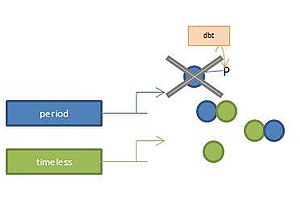Michael W. Young
Michael W. Young (born March 28, 1949) is an American geneticist and chronobiologist renowned for his pioneering work on the genetic basis of circadian rhythms. His research has significantly advanced our understanding of the molecular mechanisms controlling the circadian clock in Drosophila melanogaster, commonly known as the fruit fly, which has implications for understanding sleep and wake cycles in humans. Young's contributions to science have been recognized with numerous awards, including the Nobel Prize in Physiology or Medicine in 2017, which he shared with Jeffrey C. Hall and Michael Rosbash for their discoveries of molecular mechanisms controlling the circadian rhythm.
Early Life and Education[edit | edit source]
Michael W. Young was born in Miami, Florida. He developed an interest in biology at a young age. Young pursued his undergraduate studies at the University of Texas at Austin, where he received a Bachelor of Arts in Biology. He then went on to earn his Ph.D. in genetics at the University of Texas Graduate School of Biomedical Sciences in Houston, working on gene cloning and characterization in Escherichia coli.
Career and Research[edit | edit source]
After completing his Ph.D., Young conducted postdoctoral research at Stanford University, where he began his studies on the genetic basis of circadian rhythms in Drosophila. In 1978, he joined the faculty of the Rockefeller University in New York City, where he has spent the majority of his academic career. At Rockefeller, Young's laboratory focused on identifying genes that control the circadian clock in Drosophila, leading to the discovery of several key genes, including period (per), timeless (tim), clock (clk), and cycle (cyc).
Young's work has shown that these genes participate in a feedback loop that generates a roughly 24-hour cycle. The per and tim genes, in particular, play a critical role in this process. Their protein products accumulate during the night and degrade during the day, thus controlling the cycle of activity and rest in the fruit fly. These findings have opened up new avenues of research into the genetic and molecular basis of circadian rhythms in other organisms, including humans.
Awards and Honors[edit | edit source]
Michael W. Young's contributions to genetics and chronobiology have been recognized with numerous awards and honors. In addition to the Nobel Prize, he has received the Gruber Prize in Neuroscience, the Louisa Gross Horwitz Prize from Columbia University, and the Canada Gairdner International Award, among others. He is a member of the National Academy of Sciences and the American Academy of Arts and Sciences.
Impact and Legacy[edit | edit source]
Young's research has had a profound impact on our understanding of the biological clock that governs the daily rhythms of living organisms. By elucidating the genetic mechanisms underlying circadian rhythms, his work has paved the way for new approaches to treating sleep disorders, jet lag, and other health problems related to disruptions in the circadian cycle. Furthermore, his discoveries have broader implications for understanding how organisms adapt to the cyclic changes in their environment.
Navigation: Wellness - Encyclopedia - Health topics - Disease Index - Drugs - World Directory - Gray's Anatomy - Keto diet - Recipes
Search WikiMD
Ad.Tired of being Overweight? Try W8MD's physician weight loss program.
Semaglutide (Ozempic / Wegovy and Tirzepatide (Mounjaro) available.
Advertise on WikiMD
WikiMD is not a substitute for professional medical advice. See full disclaimer.
Credits:Most images are courtesy of Wikimedia commons, and templates Wikipedia, licensed under CC BY SA or similar.
Contributors: Prab R. Tumpati, MD

